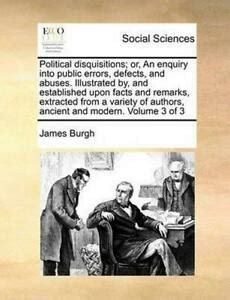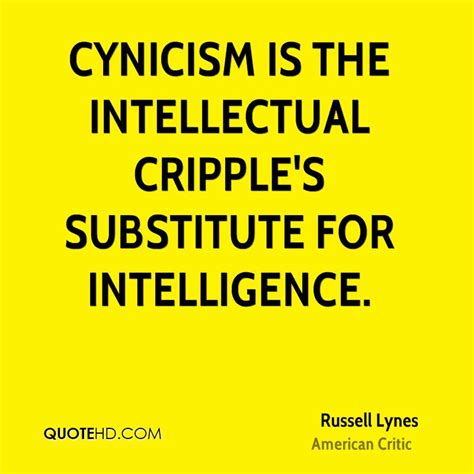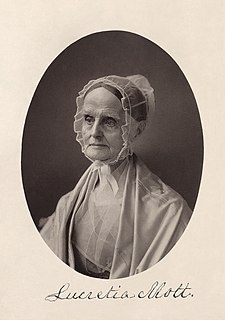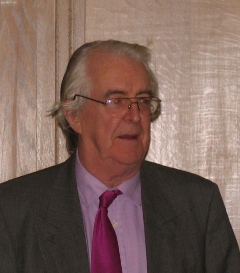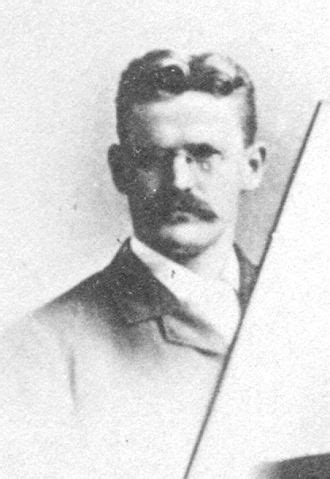Top 1082 Distinction Quotes & Sayings - Page 16
Explore popular Distinction quotes.
Last updated on December 22, 2024.
There is a distinction between what may be called a problem and what may be considered an exercise. The latter serves to drill a student in some technique or procedure, and requires little if any, original thought... No exercise, then, can always be done with reasonbable dispatch and with a miniumum of creative thinking. In contrast to an exercise, a problem, if it is a good one for its level, should require though on the part of the student.
As the only class distinction available in a democracy, the college degree has created a caste society as rigid as ancient India's. Condemning elitism and simultaneously quaking in fear that our children won't become members of the elite, we send them to college, not to learn, but to "be" college graduates, rationalizing our snobbery with the cliché that high technology has eliminated the need for the manual labor that we secretly hold in contempt.
I emphasize the distinction between brackets and no brackets because it will affect your reading experience, if you will allow it. Brackets are exciting. Even though you are approaching Sappho in translation, that is no reason you should miss the drama of trying to read a papyrus torn in half or riddled with holes or smaller than a postage stamp--brackets imply a free space of imaginal adventure.
The distinction between East and West is that the Western novel is very organized, it's very logical, there's a logical progression, there's a chronological progression, and there's a safety in that. Whereas if you look at Japanese film, it is made up of collage or bricolage, it is made up of lists, and suddenly when you stand back from the lists you begin to see the pattern of a life.
The only distinction between freedom and slavery consists in this: In the former state a man is governed by the laws to which he has given his consent, either in person or by his representative; in the latter, he is governed by the will of another. In the one case, his life and property are his own; in the other, they depend upon the pleasure of his master. It is easy to discern which of these two states is preferable.
That literary-popular distinction is, in my view, vastly overstated. At the far poles there are clearly books that are purely commercial and purely literary, written for audiences that want to see the same thing enacted over and over and over again. But the middle is where most people read and most people write.
If the technology cannot shoulder the entire burden of strategic change, it nevertheless can set into motion a series of dynamicsthat present an important challenge to imperative control and the industrial division of labor. The more blurred the distinction between what workers know and what managers know, the more fragile and pointless any traditional relationships of domination and subordination between them will become.
Now the myths represent the Gods themselves and the goodness of the Gods subject always to the distinction of the speakable and the unspeakable, the revealed and the unrevealed, that which is clear and that which is hidden: since, just as the Gods have made the goods of sense common to all, but those of intellect only to the wise, so the myths state the existence of Gods to all, but who and what they are only to those who can understand.
Christian love draws no distinction between one enemy and another, except that the more bitter our enemy's hatred, the greater his need of love. Be his enmity political or religious, he has nothing to expect from a follower of Jesus but unqualified love. In such love there is not inner discord between the private person and official capacity. In both we are disciples of Christ, or we are not Christians at all.
Religion and liberty are inseparable. Religion is voluntary, and cannot, and ought not to be forced. This is a fundamental article of the American creed, without distinction of sect or party. Liberty, both civil and religious, is an American instinct. Such liberty is impossible on the basis of a union of church and state, where the one of necessity restricts or controls the other. It requires a friendly separation, where each power is entirely independent in its own sphere.
Suddenly that it was as dangerous to be in America as it was to be overseas. So that the false distinction that's made by the anti-war movement between being over there and over here was exposed for all to see as an illusion. Although a number of people, a large amount of people still share in it. In other words, when I've been in Iraq or Afghanistan, I've probably been safer because I can carry a weapon if I have to, than my wife and daughter are living in Washington.
The popular distinction between 'constructive' and 'destructive' criticism is a sentimentality: the mind too weak to perceive in what respects the bad fails is not strong enough to appreciate in what the good succeeds. To be without discrimination is to be unable to praise. The critic who lets you know that he always looks for something to like in works he discusses is not telling you anything about the works or about art; he is saying 'see what a nice person I am.
The value of science to a republican people, the security it gives to liberty by enlightening the minds of its citizens, the protection it affords against foreign power, the virtue it inculcates, the just emulation of the distinction it confers on nations foremost in it; in short, its identification with power, morals, order and happiness (which merits to it premiums of encouragement rather than repressive taxes), are considerations [that should] always [be] present and [bear] with their just weight.
We must make a clear distinction between the nature of Chairman Mao's mistakes and the crimes of Lin Biao and the Gang of Four. For most of his life, Chairman Mao did very good things. Many times he saved the Party and the state from crisis. Without him the Chinese people would, at the very least, have spent much more time groping in the dark.
I've always thought that comedy was just another dramatic expression. I try to measure the amount of truth in a work rather than just looking at the generic distinction between comedy and drama. There's a lot of bullshit drama that leaves you totally cold. And there's a lot of wasted comedy time too. But when you get something honest, it doesn't matter what label you give it.
I think, about the distinction between fiction and nonfiction. Fiction is not really about anything: it is what it is. But nonfiction - and you see this particularly with something like the BBC Samuel Johnson Prize for Non-Fiction - nonfiction we define in relation to what it's about. So, Stalingrad by Antony Beevor. It's "about" Stalingrad. Or, here's a book by Claire Tomalin: it's "about" Charles Dickens.
My belief about performance capture is that it's a technology which allows actors to play extraordinary characters. But from an acting perspective, I've never drawn a distinction between playing a conventional, live action character and playing a role in a performance capture suit. And from a purely acting point-of-view, I don't believe there should be a special Oscar category because I think it sort of muddies the waters in a way.
The motives of the best actions will not bear too strict an inquiry. It is allowed that the cause of most actions, good or bad, may be resolved into the love of ourselves; but the self-love of some men inclines them to please others, and the self-love of others is wholly employed in pleasing themselves. This makes the great distinction between virtue and vice.
There's a strong distinction to be made between dry code smart contacts and wet code's physical law. So law is based on our minds, our wetware - it's based on analogy. The law is more flexible; software is more rigid. Various laws tend to be batched in jurisdictional silos. Software tends to be independent.
Ethics occupies a central place in philosophy because it is concerned with sin, with the origin of good and evil and with moral valuations. And since these problems have a universal significance, the sphere of ethics is wider than is generally supposed. It deals with meaning and value and its province is the world in which the distinction between good and evil is drawn, evaluations are made and meaning is sought.
A precondition for being a science fiction writer other than an interest in the future is that, an interest - at least an understanding of science, not necessarily a science degree but you must have a feeling for the science and its possibilities and its impossibilities, otherwise you're writing fantasy. Now, fantasy is also fine, but there is a distinction, although no one's ever been able to say just where the dividing lines come.
Everyone recognizes a distinction between knowledge and wisdom. . . Wisdom is a kind of knowledge. It is knowledge of the nature, career, and consequences of human values. Since these cannot be separated from the human organism and the social scene, the moral ways of man cannot be understood without knowledge of the ways of things and institutions.
I am aware of the technical distinction between ‘less’ and ‘fewer’, and between ‘uninterested’ and ‘disinterested’ and ‘infer’ and ‘imply’, but none of these are of importance to me. ‘None of these are of importance,’ I wrote there, you’ll notice – the old pedantic me would have insisted on “none of them is of importance”. Well I’m glad to say I’ve outgrown that silly approach to language
No kingdom can be secured otherwise than by arming the people. The possession of arms is the distinction between a freeman and a slave. He, who has nothing, and who himself belongs to another, must be defended by him, whose property he is, and needs no arms. But he, who thinks he is his own master, and has what he can call his own, ought to have arms to defend himself, and what he possesses; else he lives precariously, and at discretion.
Ancient wisdom and quantum physicists make unlikely bedfellows: In quantum mechanics the observer determines (or even brings into being) what is observed, and so, too, for the Tiwis, who dissolve the distinction between themselves and the cosmos. In quantum physics, subatomic particles influence each other from a distance, and this tallies with the aboriginal view, in which people, animals, rocks, and trees all weave together in the same interwoven fabric.
Wit makes its own welcome, and levels all distinction. No dignity, no learning, no force of character, can make any stand against good wit. It is like ice, on which no beauty of form, no majesty of carriage, can plead any immunity; they must walk gingerly, according to the laws of ice, or down they must go, dignity and all.
When I'm writing about complicated subjects, it usually involves a world. It could be the world of Scientology or the world of Al Qaeda, or the world of counter-terrorism.I look for emblematic beasts of burden - what I call "donkeys" - who can carry the reader through this world. They serve a different purpose. Donkeys are not especially interesting or likeable, but they are serviceable. They will take you into this world. The distinction I'm trying to make is: It's not about them. It's about the world.
As instruments for knowing the objects, the sense organs are outside, and so they are called outer senses; and the mind is called the inner sense because it is inside. But the distinction between inner and outer is only with reference to the body; in truth, there is neither inner nor outer. The mind's nature is to remain pure like ether.
Thou shalt not commit adultry is a command which makes no distinction between the following persons. They are all required to obey it: children at birth. Children in the cradle. School children. Youths and maidens. Fresh adults. Older ones. Men and women of 40. Of 50. Of 60. Of 70. Of 80. Of 100. The command does not distribute its burden equally, and cannot. It is not hard upon the three sets of children.
The human understanding, when any preposition has been once laid down... forces everything else to add fresh support and confirmation; and although more cogent and abundant instances may exist to the contrary, yet it either does not observe them or it despises them, or it gets rid of and rejects them by some distinction, with violent and injurious prejudice, rather than sacrifice the authority of its first conclusions.
I want you to consider this distinction as you go forward in life. Being male is not enough; being a man is a right to be earned and an honor to be cherished. I cannot tell you how to earn that right or deserve that honor. . . but I can tell you that the formation of your manhood must be a conscious act governed by the highest vision of the man you want to be.
There is no meaningful distinction between eating flesh and eating dairy or other animal products. Animals exploited in the dairy industry live longer than those used for meat, but they are treated worse during their lives, and they end up in the same slaughterhouse after which we consume their flesh anyway. There is probably more suffering in a glass of milk or an ice cream cone than there is in a steak.
The power of perpetuating our property in our families is one of the most valuable and interesting circumstances belonging to it, and that which tends most to the perpetuation of society itself. It makes our weakness subservient to our virtue; it grafts benevolence even upon avarice. The possession of family wealth and of the distinction which attends hereditary possessions (as most concerned in it,) are the natural securities for this transmission.
There is a distinction to be drawn between true collectors and accumulators. Collectors are discriminating; accumulators act at random. The Collyer brothers, who died among the tons of newspapers and trash with which they filled every cubic foot of their house so that they could scarcely move, were a classic example of accumulators, but there are many of us whose houses are filled with all manner of things that we "can't bear to throw away.
There are some despotic governments so filled with a feeling of insecurity that they regard the free life of culture as a threat to their existence. ... On the other extreme is the kind of popular government which is so distrustful of all forms of distinction that it sees even in the cultivated individual a menace to its existence. Such states are likely to maintain a pressure which discourages cultural endeavor, although the pressure may be exerted through social channels.
There is a broad distinction between religion and theology. The one is a natural, human experience common to all well-organized minds. The other is a system of speculations about the unseen and the unknowable, which the human mind has no power to grasp or explain, and these speculations vary with every sect, age, and type of civilization. No one knows any more of what lies beyond our sphere of action than thou and I, and we know nothing.
No man is nobler born than another, unless he is born with better abilities and a more amiable disposition. They who make such a parade with their family pictures and pedigrees, are, properly speaking, rather to be called noted or notorious than noble persons. I thought it right to say this much, in order to repel the insolence of men who depend entirely upon chance and accidental circumstances for distinction, and not at all on public services and personal merit.
Some people draw a comforting distinction between force and violence. I refuse to cloud the issue by such word-play. The power which establishes a state is violence; the power which maintains it is violence; the power which eventually overthrows it is violence. Call an elephant a rabbit only if it gives you comfort to feel that you are about to be trampled to death by a rabbit.
Joy, like love, is an impenetrable, God-given state of being. The distinctions between joy and happiness and love and affection are important ones under the notion that happiness is an 'iffy' emotion, a highly dependent feeling both aroused and destroyed by external conditions apart from God. And the distinction between love and affection is parallel to such.
It is in vain that we search for an essential difference between good and evil, for their constituents are the same. The crucial distinction lies in their structure, i.e., the manner in which the pieces are assembled. Evil is disintegration, an angry juxtaposition of alienated opposites, with parts always striving to repress other parts. Good is the synthesis and reconciliation of these same pieces.
I really think there is a very large distinction between synthetic and naturally occurring drugs. ... I think that these plants 'take people' as much as people take the plants. ... When you take one of these ancient, ancient hallucinogens you are locking in to the morphogenetic fields of all the people who ever took it.
Look, nearly everything in the culture says we're freaks. Doing sex work, we're desired; we can get rewarded for being what we've always wanted to be. What's so bad about that? My own notion is I wish sex work would be decriminalized (not legalized, please note the distinction) so that more trannies could get into the field if they wanted to and not get into trouble for it.
It's been a long comeback. Things were pretty dark for me. But I have a faith now, and it saves my day. I was angry with God for a long time because I was unhappy with me. I hadn't learned to make the distinction between God and my parents. But there's a peace now. In the end, I got sick and tired of being sick and tired.
Now you have to ask a question - is that really, is capitalism really about the ability of a handful of rich people to manipulate the lives of thousands of other people and walk off with the money? Or is that in fact somehow a little bit of a flawed system? And so I do draw distinction between looting a company, leaving behind broken families and broken neighborhoods and then leaving a factory that should be there.
I get the greatest joy from just doing anything, being an actor. Doing music, and doing what I love to do. I don't make a huge distinction between comedy and drama. I think the whole point is just trying to be as honest, from moment to moment, as you can be. If you're honest about the material, and the material is ridiculous, then you're in a comedy.
Socialism, like the ancient ideas from which it springs, confuses the distinction between government and society. As a result of this, every time we object to a thing being done by government, the socialists conclude that we object to its being done at all . . . . It is as if the socialists were to accuse us of not wanting persons to eat because we do not want the state to raise grain
Developed countries will always welcome the Einsteins of this world - those individuals whose talents are already recognized and deemed to have value. This welcome doesn't usually extend to the poor and uneducated people seeking to enter the country. But the truth, supported by the facts of history and the richness of immigrant contribution to America's distinction in the world, is that the most entrepreneurial, innovative, motivated citizen is the one who has been given an opportunity and wants to repay the debt.
When you say documentary, you have to have a sophisticated ear to receive that word. It should be documentary style, because documentary is police photography of a scene and a murder ... that's a real document. You see, art is really useless, and a document has use. And therefore, art is never a document, but it can adopt that style. I do it. I'm called a documentary photographer. But that presupposes a quite subtle knowledge of this distinction.
I was having an epiphany. A moment of supreme clarity, leading to what I dubbed a “realization of solitude” that goes like this: I’m lonely. But when I left that girl in the window I was sure I’d never felt more godforsaken in my life. There’s a big difference between being alone and being lonely. And I’m guessing that once you’ve discovered this distinction you can’t go back to solitary confinement without serious emotional repercussions.
Temperance is love surrendering itself wholly to Him who is its object; courage is love bearing all things gladly for the sake of Him who is its object; justice is love serving only Him who is its object, and therefore rightly ruling; prudence is love making wise distinction between what hinders and what helps itself.
The arrival of television established a mass-media order that dominated the last 50 years. This is a personal media revolution. The distinction between the old order and the new order is very important. Television delivered the world to our living room. In the old media, all we could do was press our noses against the glass and watch.
One can hardly appreciate how academia has perverted its highest tasks and "ideals" without pondering long and hard the implications of Jacques Barzun's House of Intellect and its Hegelian/Bergsonian contrast between rigidified "intellect" and always-growing "intelligence." This fundamentally Hegelian distinction, needless to say, cuts to the quick of the contrast between Platonic and Aristotelian forms of philosophy.
We shall use the terms morality, behavior, conduct, or constructive action in the same broad way. It may sound strange to speak of the morals of an atom, or of the way in which a molecule conducts itself. But in the last analysis, science can draw no fundamental distinction between the conduct of an animal, a bullet, or a freshman, although there may be more unknown factors involved in one case than in the other.

























